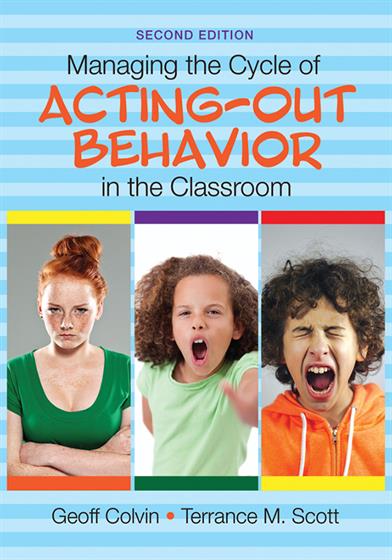
Hands-on, Practical Guidance for Educators
From math,
literacy, equity, multilingual learners, and SEL, to assessment, school counseling,
and education leadership, our books are research-based and authored by experts
on topics most relevant to what educators are facing today.
Bestseller!
Managing the Cycle of Acting-Out Behavior in the Classroom
Second Edition
This updated edition of the definitive guide to classroom management details seven phases of acting-out behavior, showing educators how to recognize and manage the full range of problem behavior, develop students’ social skills, and maximize student engagement during instruction.
Product Details
- Grade Level: PreK-12
- ISBN: 9781483374369
- Published By: Corwin
- Year: 2014
- Page Count: 264
- Publication date: December 03, 2014
Review Copies
Review copies may be requested by individuals planning to purchase 10 or more copies for a team or considering a book for adoption in a higher ed course. To request a review copy, contact sales@corwin.com.



